Edinburgh Rugby: Evolution or excuses?
- Published
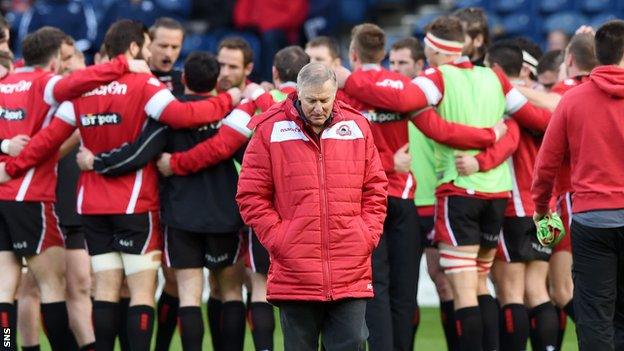
Alan Solomons and his Edinburgh squad are targeting a top-four Pro12 finish this season
Alan Solomons was savouring the succulent taste of a second derby victory over Glasgow in a week when he made one of his bolder statements as Edinburgh's head coach.
The gap, he proclaimed, between his fluctuating side and their rivals along the M8, then-defending Pro12 champions, was no more.
Edinburgh were far from brilliant, but with back-to-back 1872 Cup victories seized in fractious dogfights, Solomons reckoned his power-laden pragmatists had gobbled up ground on their inter-city foes.
That was back in early January, with Edinburgh sitting pretty in fourth place, in fine shape to make good on their top-six target, or better.
But four months on, it was Solomons' side whose season petered out with a maddening collapse at home to Cardiff Blues, consigning them to ninth place, while the Warriors saw play-off combat for a fifth successive season.
For the capital club, this was a familiar role in the dynamic of Scottish rugby.
Edinburgh & Glasgow in Pro12 - last five years | ||
|---|---|---|
Season | Edinburgh | Glasgow |
2015-16 | 9th | 3rd |
2014-15 | 8th | 1st (champions) |
2013-14 | 8th | 2nd (finalists) |
2012-13 | 10th | 3rd |
2011-12 | 11th | 4th |
Sacrificing style for stability
Solomons cannot fairly be judged on his first season, 2013-14, at the helm of a ship taking on water by the gallon. His late arrival in August due to commitments in Super Rugby, the ramshackle crew he inherited, and the upheaval he oversaw render that unforgiving campaign almost a complete write-off.
But Edinburgh's established Harlem Globetrotters approach to attacking, and general disregard for anything resembling a co-ordinated defence, were no longer tolerated.
The South African sacrificed style for stability - and that seemed sensible given the circumstances that confronted him. It is under these auspices that raw talents such as back-rows Jamie Ritchie and Magnus Bradbury and full-back Blair Kinghorn have followed Ben Toolis and Sam Hidalgo-Clyne in emerging from the ranks.
But while the last two seasons have brought an increase in their Pro12 points tally - from 38 in 2013-14, to 48 the following year, to 54 last season - the rugby has remained dogmatic and unimaginative.
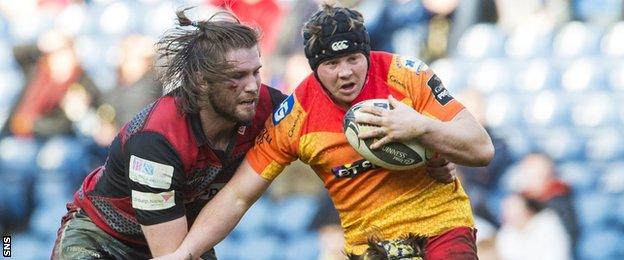
Edinburgh's defence has been firm, but their try-scoring record is poor
Solomons' belligerent Edinburgh had the league's third-best defence last season for points conceded; joint-second for tries conceded.
Their pack - littered with front-five Test operators and bludgeoning ball-carriers - is as mean as any in the Pro12.
But it is the failure to build on this excellent platform that has dragged them down. They scored 41 tries last season; seven of the eight teams above them - bar the Scarlets - managed more than 50.
'It kind of gets predictable'
"At the start, we were playing an up-front style where it was round-the-corner rugby, forwards carrying hard, and it gets kind of predictable," recalls Tim Visser, the Scotland wing at Edinburgh for the first two years of Solomons' reign, now at Harlequins.
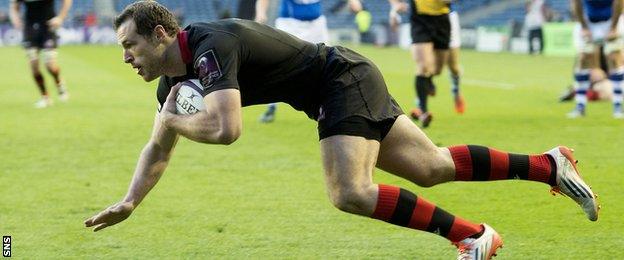
Tim Visser was a prolific try-scorer at Edinburgh
"At one point, the opposition knew [back-row] Dave Denton was coming every second phase after set-piece ball, and they were waiting for him and trying to smash him.
"You need to be a little more diverse nowadays. Some of the best teams in the world struggle to play that way - everyone's big, everyone can tackle, and you can't offer the same thing every time.
"I think one of the problems Edinburgh has maybe had is they become a little bit one-dimensional. Suddenly they are expected to play [expansive] rugby, or they need to, but they don't know how to because they never practise it in training.
"That was certainly the case when I was there. You can grind out games and it can win you games - we went over to Munster in the start of my last season and put them away at Thomond Park, which we hadn't done for years - but on the other hand, most teams can handle that sort of stuff now.
"You need that bit of flair to do something special and win a game. That wasn't always there at Edinburgh because it wasn't something we practised."
Excuses for failure?
To counter his poor report card, and his team's wild oscillations in form and results, the 66-year-old ex-lawyer Solomons has a well-practised spiel of mitigating circumstances.
He has been deprived of big players - Nasi Manu, a Super Rugby-winner, Cornell du Preez, the box-office back-row, and Grant Gilchrist, a former Scotland captain, for vast swathes of his tenure. Others, like Denton - two months into last season - have moved south, with Matt Scott following suit this summer, and not necessarily by Solomons' hand.
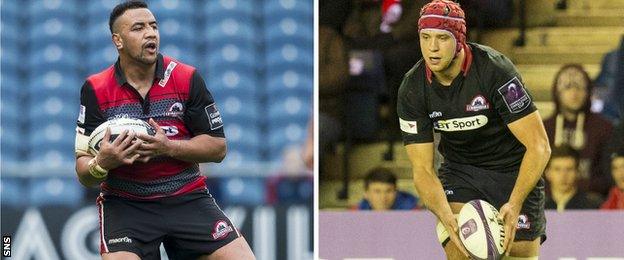
Nasi Manu and Grant Gilchrist have both incurred long lay-offs through injury
But Glasgow did without Mark Bennett and Alex Dunbar for a significant chunk of their Pro12-winning season. And even when their superstars are absent, there's a coherence and fluency at Scotstoun that Edinburgh seldom muster.
The fear is that Edinburgh under Solomons are stagnating and shackled. Too wooden, too rigid. The South African has had three years to develop his squad. In the same three years, Pat Lam took Connacht, Ireland's ugly duckling, from eighth place to the Pro12 title.
"Of course you've got to keep your international players, and it's a shame to see people like that going," reflects Visser. "I myself didn't really want to go.
"It's always hard if you can't keep hold of your core players. Denton and Scott are two very key players they've let go. Are you going to find anything as good? Probably not.
"But it's a business, a job, and you've got to take some of the better offers on the table. You can't blame the SRU for losing players on the other end of things.
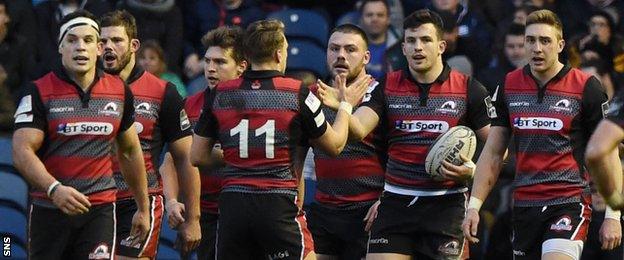
Matt Scott will play his first game for Gloucester this weekend
"But Glasgow are proving you can have a competitive squad with a similar budget. You've got to be clever with your signings. They've signed one or two gems that can make a real difference. That is all part of it."
New home comforts at Myreside?
Some players have expressed frustration at Edinburgh's present living arrangement - a somewhat awkward house-share with Scottish Rugby, where their bedfellows are also their bosses.
And when the Scotland squad descend en masse to use the facilities, Edinburgh cram into the changing rooms at Murrayfield Wanderers, where the showers don't always run hot.
A move in January to Myreside, with its more modest confines, should help forge a clearer club identity, and finally rid Edinburgh of the ignominy of playing before 4,000 fans in a 67,000-capacity stadium.
The glaring caveat is that it's tricky to build such a brand without the thrills to match.
Make or break?
Last year, and the year before that, Edinburgh's goal was a top-half berth, and a seat at Europe's top table.
Now their ambitions are loftier - despite the failures. "Minimum top-four", declares Fraser McKenzie, the lock. "We can make the top two, even top of the table", argues Rory Sutherland, the prop.
If it sounds like clinical propaganda, there is a genuine lament here. If Edinburgh have the players, why don't they have the gumption or guile to mount a realistic tilt at the play-offs?
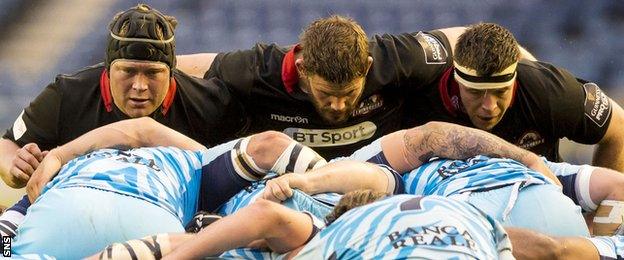
The likes of WP Nel, left, part of an all-Scotland Edinburgh front-row, could depart at the season's end.
Maybe this will be the season when talk of evolution brings tangible reward.
Solomons is likely to move on at the end of it, while cherished out-of-contract assets like WP Nel and John Hardie, two of the first and most pivotal names on Vern Cotter's Scotland teamsheet, may follow him out of Murrayfield.
And if this is to be another stale campaign of hollow promises, Solomons' reign will be remembered only for excuses.
- Published31 August 2016
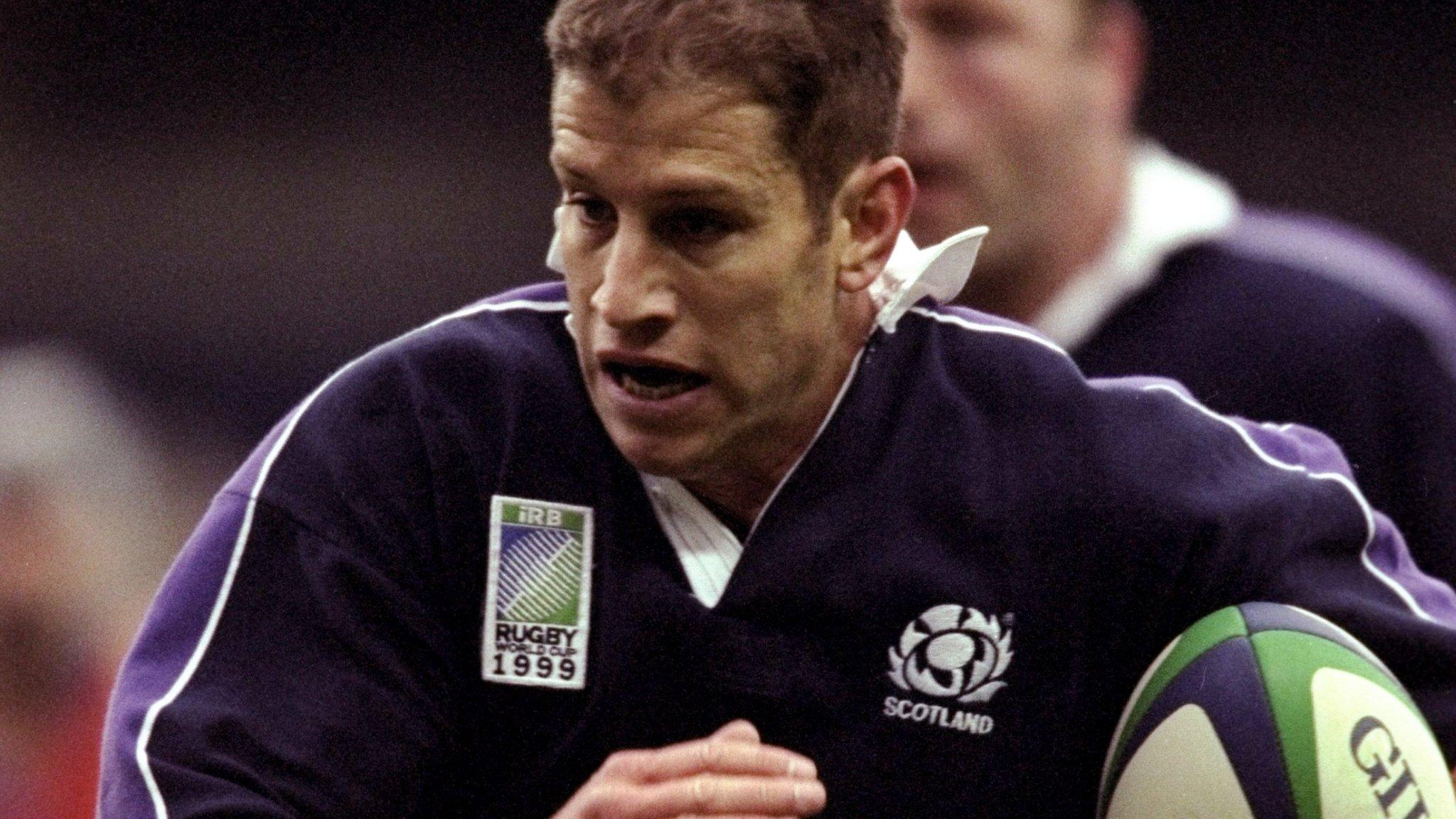
- Published2 September 2016
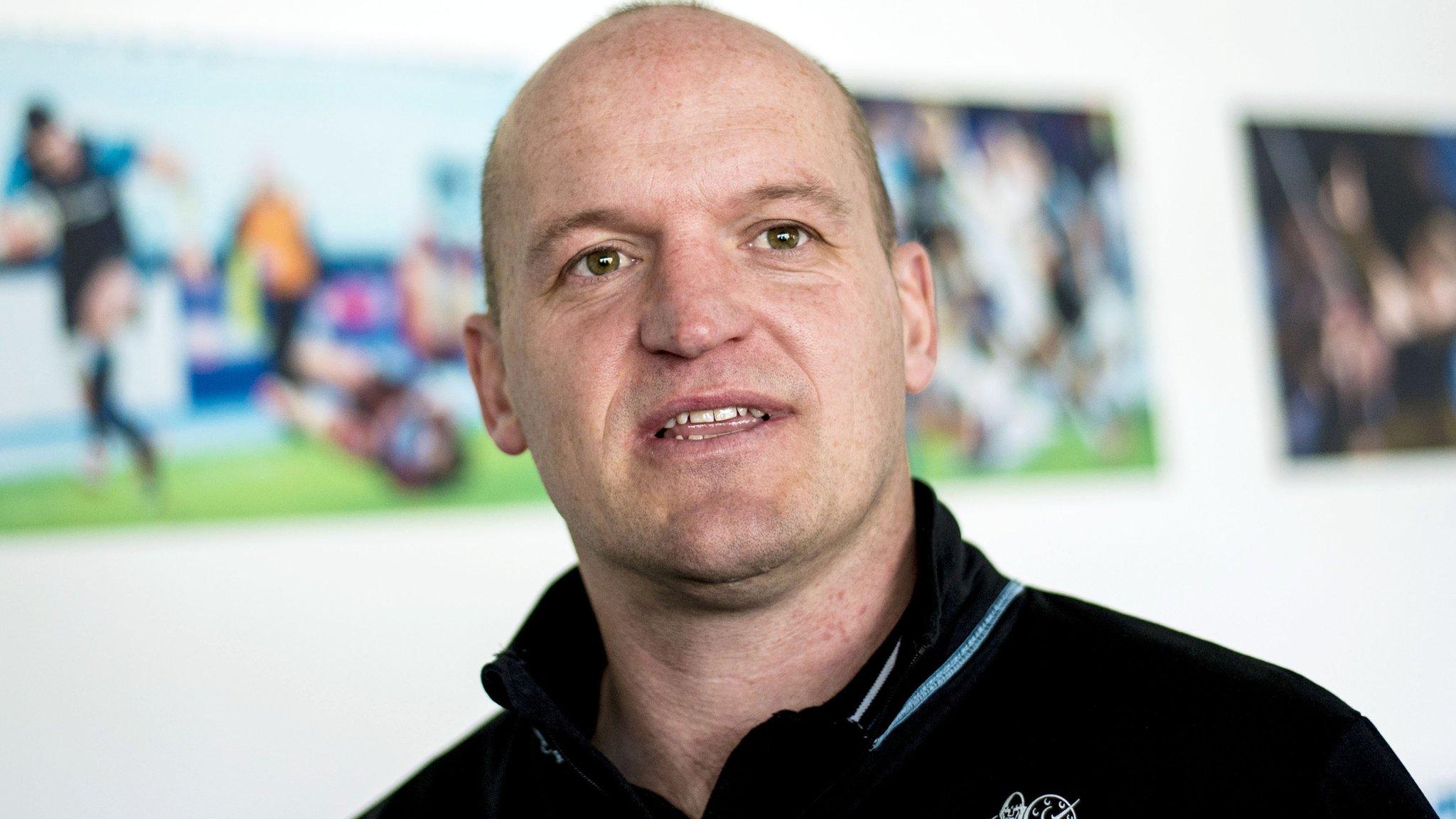
- Published1 September 2016
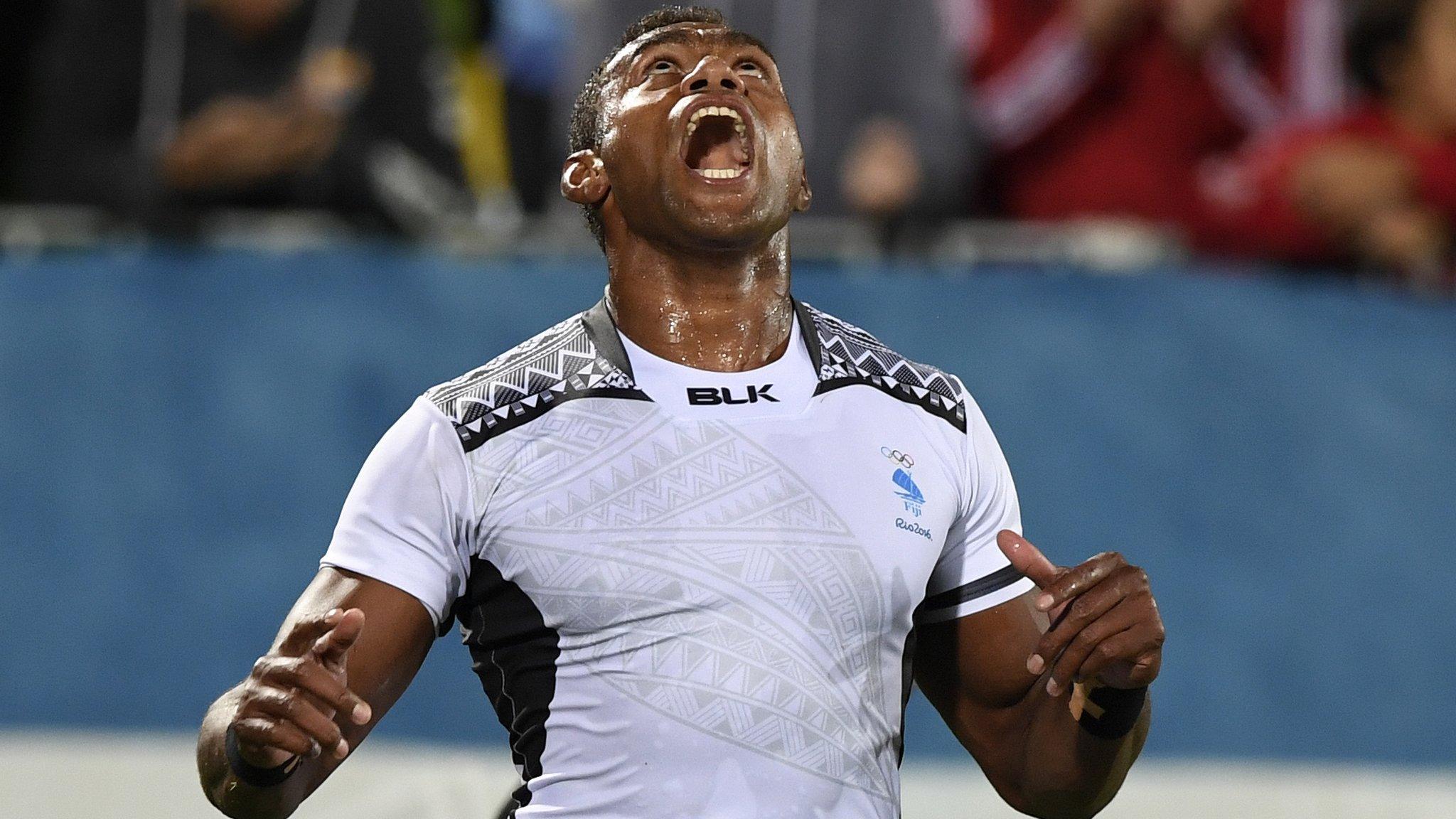
- Published1 September 2016
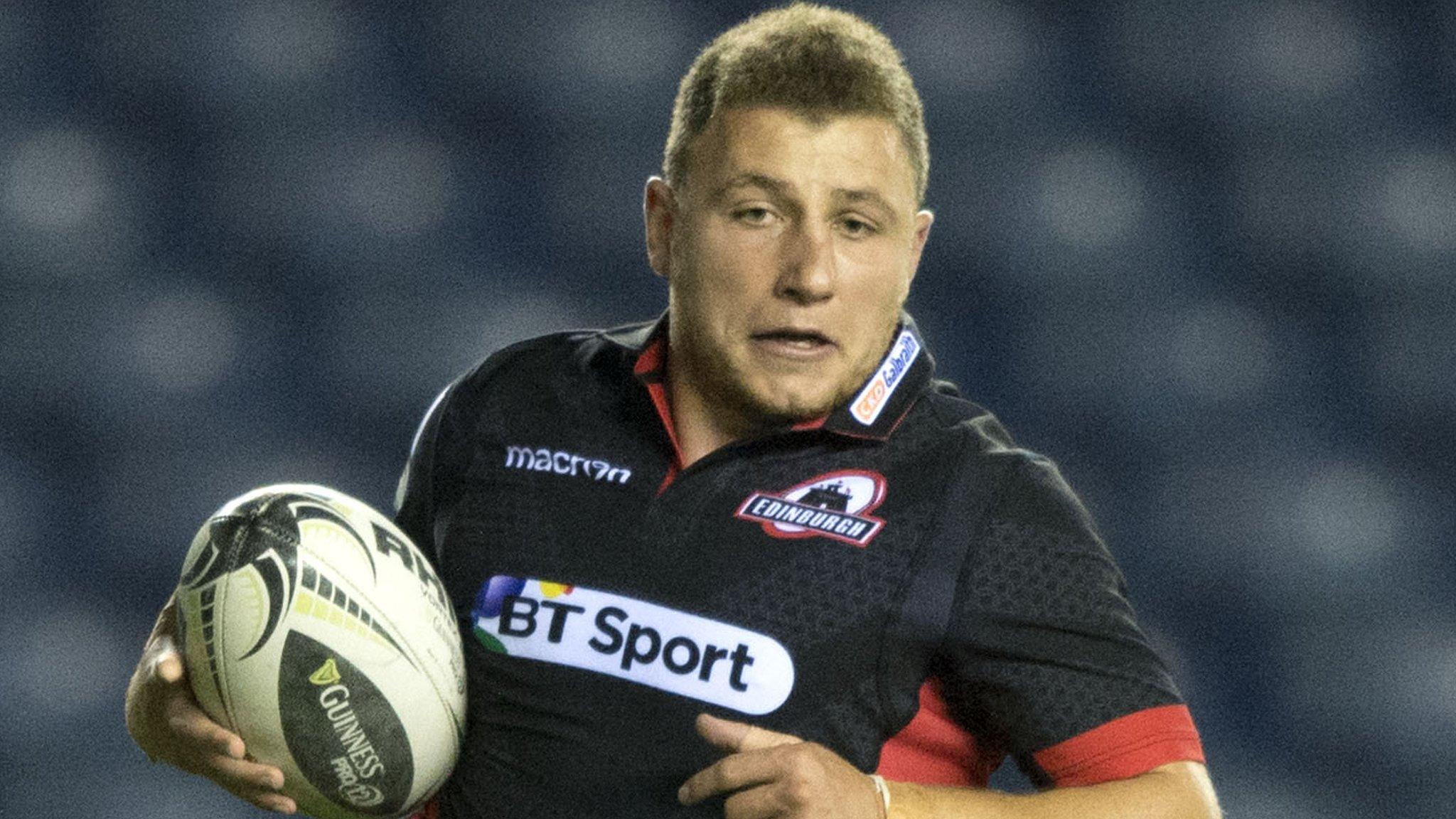
- Published14 September 2016

- Published15 February 2019
